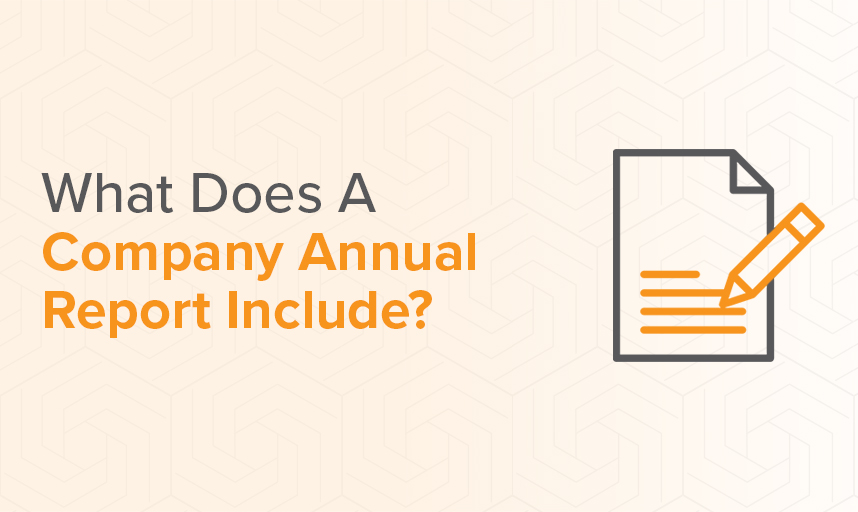What Does A Company Annual Report Include?

An annual report serves as a comprehensive document that encapsulates an organisation’s key milestones and financial performance over a specific year. Typically mandated by legislation, these reports are instrumental in communicating essential information to stakeholders, including shareholders, lenders, and the general public.
While regulations often necessitate the inclusion of a directors’ report, financial details, and an auditor’s statement, many companies and non-profits leverage annual reports to showcase achievements, support marketing efforts, and facilitate fundraising.
Structure Of An Annual Report
Cover and Credits
The initial section of an annual report typically includes the cover design and credits, setting the tone for the document.
Acknowledgment of Country
In recognition of the diverse communities a company operates in, some reports include an acknowledgement of the Indigenous peoples of that region.
Contents
An organised table of contents guides readers through the report, making it easier to locate specific information.
Annual Highlights
This section provides a snapshot of the organisation’s major accomplishments during the year.
CEO Report
Offering a comprehensive review of the year, the CEO report focuses on specific outcomes and achievements, often providing insights into the company’s overarching strategy.
Chair or Directors’ Report
Positioned in line with the strategic plan, this report contextualises the organisation’s achievements within a broader framework, offering insights into governance and strategic objectives.
Vision, Strategy, and Mission Statement
Clearly articulating the organisation’s vision, strategy, and mission statement provides a strategic backdrop for stakeholders.
Key Achievements
This section delves into the organisation’s notable accomplishments, potentially spanning financial, environmental, sustainability, and governance aspects.
Project Reports
Often segmented by business segments, project reports detail specific initiatives, and may include case studies or breakout sections.
Financial Statements
Confirming the accuracy and adherence to accounting standards, the auditor’s statement provides additional assurance to stakeholders.
Importance of Directors’ Report
The directors’ report holds a pivotal role in meeting shareholders’ informational needs. It goes beyond the financial report, offering insights into the operations, financial position, and business strategies of the company. Key components of a directors’ report include:
Review of Operations
Detailed information on the company’s operations, significant changes, and principal activities.
Future Operations and Developments
Insights into future actions, growth plans, and potential challenges.
Engagement and Partnerships
Highlighting collaboration and partnerships with other organisations.
Remuneration Report
Detailing the remuneration policy for key executives.
Corporate Governance Statement
The corporate governance statement addresses the organisation’s adherence to non-mandatory guidelines, emphasising principles such as:
- Laying Solid Foundations for Management and Oversight
- Structuring the Board Effectively
- Instilling a Culture of Lawful and Ethical Conduct
- Safeguarding the Integrity of Corporate Reports
- Making Timely and Balanced Disclosures
- Respecting the Rights of Security Holders
- Recognising and Managing Risk
- Remunerating Fairly and Responsibly
Financial Report Essentials
- Purpose of Financial Statements
Providing information on financial performance and position, aiding shareholders and stakeholders in decision-making.
- Four Primary Financial Statements
Including the statement of profit or loss, statement of financial position, statement of changes in equity, and statement of cash flows.
- Directors’ Declaration
Confirming compliance with the Corporations Act and presenting a true and fair view of the company’s financial position.
Auditor’s Report Breakdown
- Opinion
Conveying whether the financial report aligns with regulations and accounting standards.
- Basis for Opinion
Detailing the audit process and confirming compliance with ethical requirements.
- Key Audit Matters
Addressing significant audit considerations.
- Emphasis of Matter and Other Paragraphs
Drawing attention to crucial matters that may impact understanding.
- Opinion on the Remuneration Report
Expressing the auditor’s stance on compliance with remuneration guidelines.
- Modifications to the Auditor’s Report
Issued in the presence of material misstatements or an inability to obtain sufficient audit evidence.
- Limitations
Clarifying that while the auditor’s report provides confidence, it does not guarantee absolute accuracy or the continued viability of the company.
Tips for Effective Annual Report Writing
- Allocate Sufficient Time
Crafting a comprehensive annual report requires time for collating information and extracting highlights from various departments.
- Ensure Consistency
Maintaining consistency across the report enhances readability and comprehension for the reader.
- Utilise Headings, Graphics, and Case Studies
Breaking up the text with headings, graphics, and real-life case studies adds vibrancy and reliability to the report.
Conclusion
To conclude, an annual report is not just a statutory obligation; it is an opportunity for organisations to showcase their journey, achievements, and aspirations, fostering trust and engagement with stakeholders. And if you have any issues structuring your company’s annual report, you can consult KPG Taxation. Their expert tax agents can help you with transparent reporting, thoughtful structuring, and adherence to best practices so that you can transform annual reports into compelling narratives.
- Categories
- Tax Refund

Focus On Growing Your Business, Leave The Accounting On Us!
- Income Tax : File your taxes & get the best claims & returns.
- Accountancy : Hire expert accountants to manage your transactions.
- Bookkeeping : Let us handle your record books and expense reports.
- Business Advisory : From company set-up to payroll, we handle it all.



